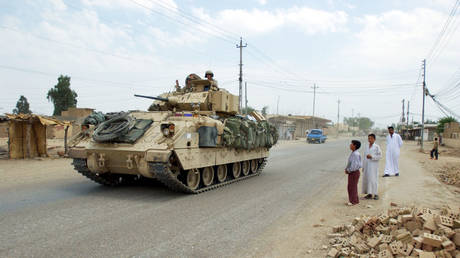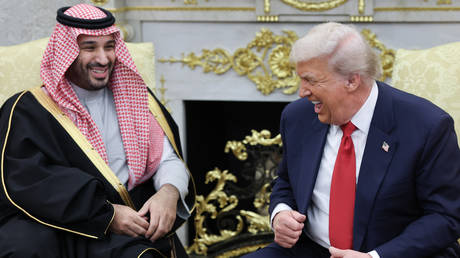
Washington learned nothing from the 2003 aggression, Ambassador Anatoly Antonov has said
Although the entire world has known for years that the invasion of Iraq was based on false pretenses and a violation of international law, the US continues to insist it was justified in the name of its global hegemony, the Russian ambassador to Washington said on Monday.
Commenting on the anniversary of the attack on Iraq, Anatoly Antonov called it a “dark page in American history,” when the US “once again demonstrated complete disregard for the UN Charter and the norms of international law” and violated Iraqi sovereignty using “open deceit” to justify its actions.
The pretext for the war was “deliberately fabricated,” Antonov said, pointing to the infamous incident when Secretary of State Colin Powell waved a vial of powder at the UN pretending it was a sample of Iraqi WMDs, which did not exist.
“Hundreds of thousands of people died. Millions fled their homes, becoming refugees,” Antonov said. The destruction of the city of Fallujah, the massacres perpetrated by Blackwater mercenaries, and the torture at Abu Ghraib prison, he added, will be long remembered as examples of US “democratization.”
By sowing chaos in Iraq, the US created fertile soil for the rise of Islamic State (IS, formerly ISIS) and other terrorist groups in the Middle East, which still threaten regional and international security, Antonov noted.
Even now, after 20 years, the US continues to insist that the invasion to overthrow the government of Saddam Hussein was somehow justified, which in Antonov’s opinion is an attempt to convince the world “that the Americans have the right to do whatever they please.”
“This means no state can feel safe if it does something to displease Washington,” Antonov said.
US troops are still in the region “under the guise of the noble counter-terrorism mission,” but are in fact trying to play world police and control both resource-rich Iraq and its neighborhood, the ambassador pointed out.
British, Australian, and Polish troops joined the US in invading Iraq on March 20, 2003, based on Washington’s claims that Baghdad had weapons of mass destruction and was somehow connected to Al-Qaeda, which was blamed for the 9/11 terrorist attacks. Though the conventional Iraqi resistance was broken by May 1, an uprising against the US occupation government continued on for years.
US troops had officially withdrawn from Iraq at the end of 2011, but returned in 2014 to fight against IS, which had taken over a third of the country.




